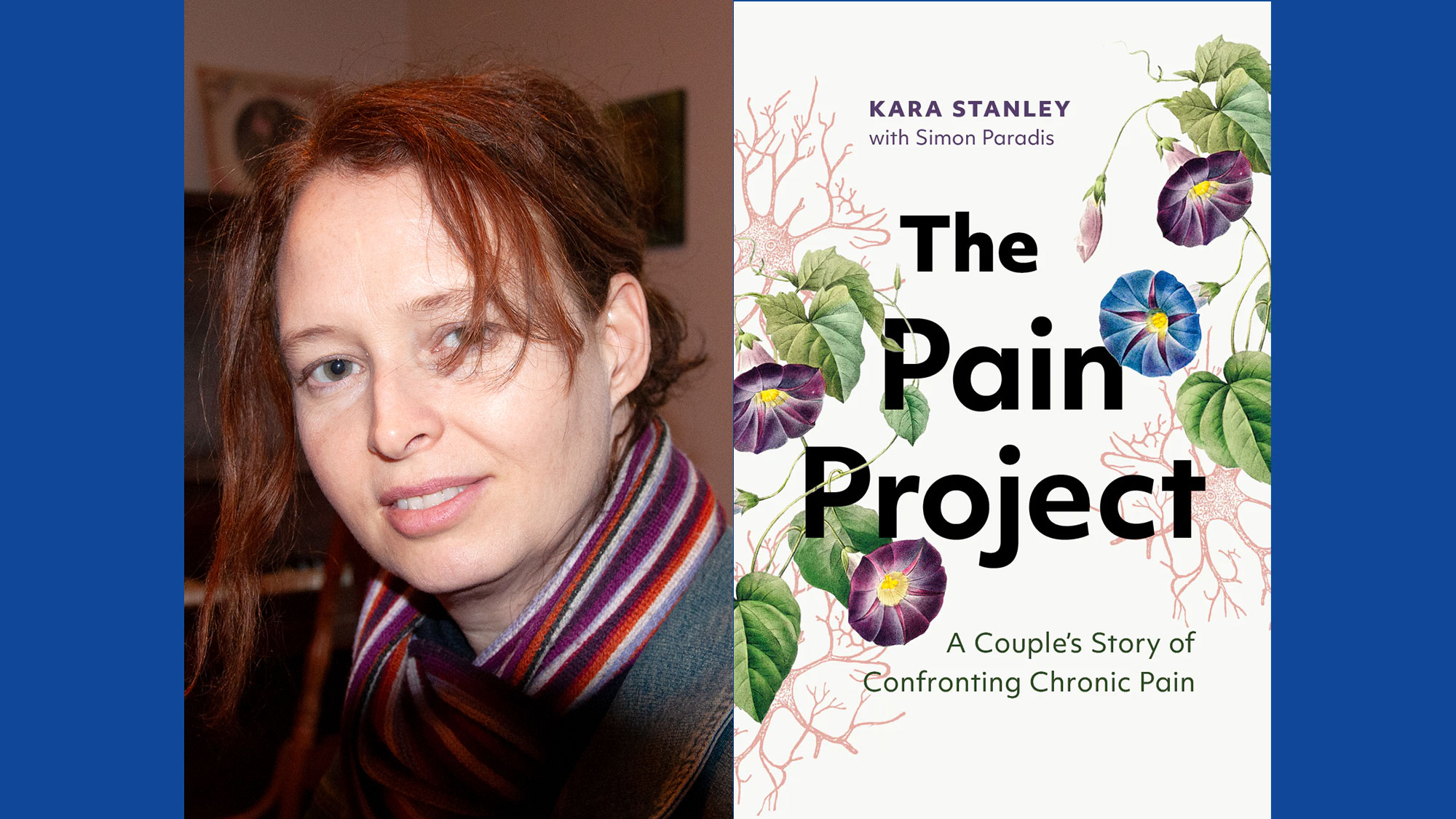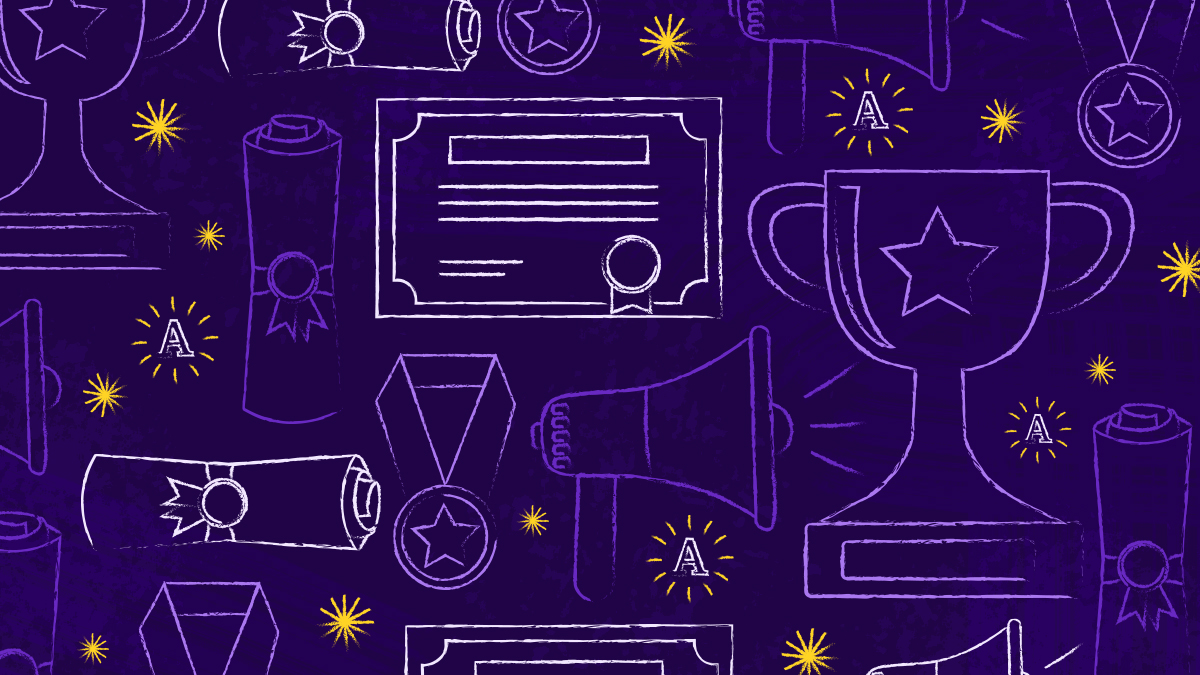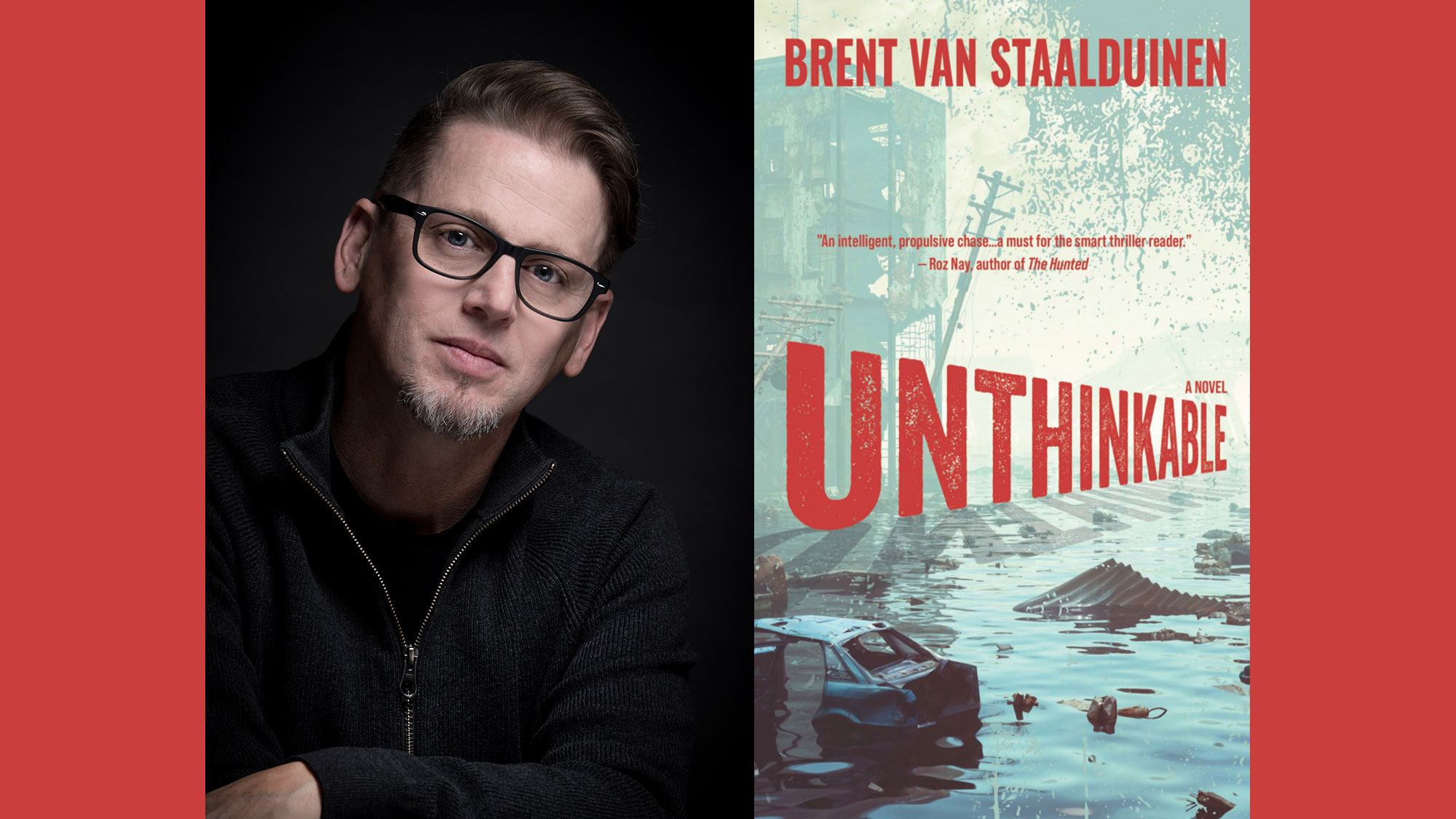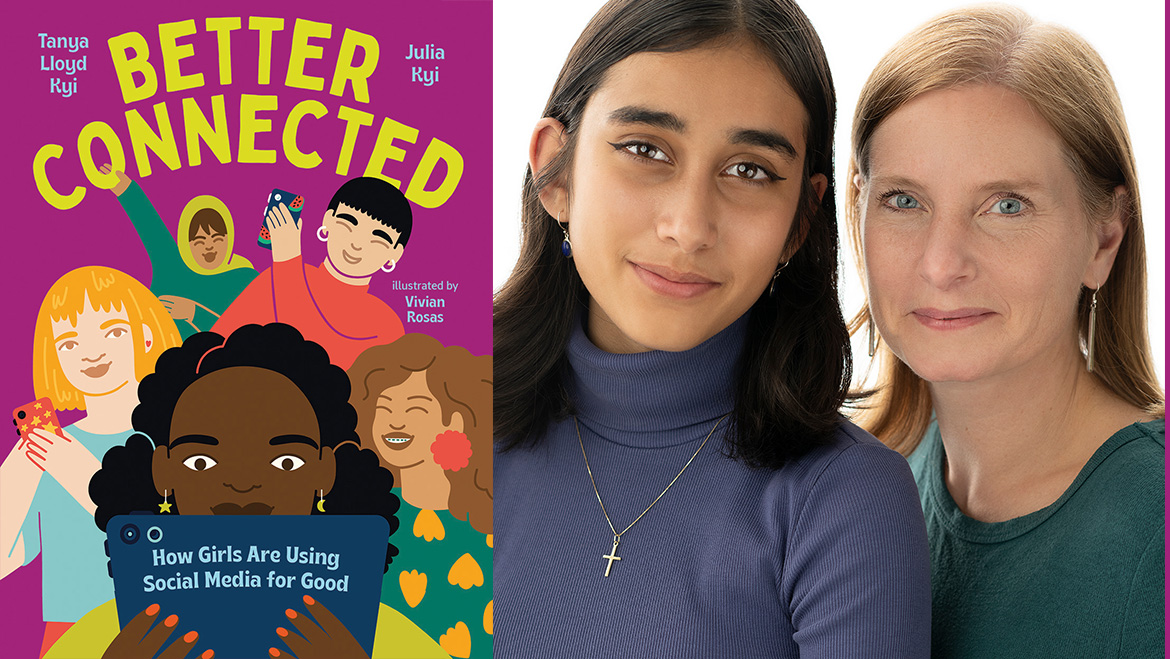

Interviewed by Christine Palka, Creative Writing
The online world has real dangers, but girls around the world are using social media to create positive change and practice good digital citizenship. Lecturer Tanya Kyi’s new children’s book, Better Connected, focuses on the less-recognized and positive aspects of the online experiences of girls.
Tanya co-wrote the book with her teenage daughter, Julia Kyi, a feminist advocate and aspiring politician. We spoke with Tanya and Julia about their reasons for writing the book, including intersectional feminist content for younger readers and navigating social media as a parent.
What is Better Connected about?
Tanya: From environmental activism and gun control to immigration policy and education, girls are leading the way. They’re showing up, teaming up, and speaking up. You’ve probably seen media stories about the ways girls interact online, with headlines like “Depression in Girls Linked to Higher Use of Social Media.” But there’s another side to the story. Better Connected focuses on less recognized and more positive online experiences.
Julia: The book has profiles of real girls who are using social media to make the world better. It’s also full of practical ideas and tools for getting started online. Most importantly, the book is an inspiring look at the amazing things girls can accomplish.
Why did you write about the online experiences of girls?
Tanya: At the breakfast table one day, I floated a new book idea. I wanted to write about the girls who were launching their own platforms or using social media for leadership and advocacy. My daughter reeled off so many great additions, I asked if she’d like to co-write the book. And Better Connected was born. Julia did most of her writing at midnight, and I tend to write in the early mornings, so we had to actually schedule meetings to edit things together. But we got along surprisingly well and we’re both proud of the results.
Julia: In my memory, this happened in the car, not at the breakfast table. (I would never be awake enough at the breakfast table to contribute actual ideas.) But my mom’s right — we didn’t argue, and it was an amazing project to work on together.
How did you determine which changemakers to feature in the book?
Tanya: I yelled up the stairs. “Julia! I need one more person for the activism chapter. Who should it be?” If only I could research all my books by yelling up the stairs…
Julia: I wanted to highlight a variety of young activists in varying fields. I really admired X Gonzalez and their gun safety advocacy, as well as Helena Gualinga’s climate activism. There were so many amazing youth to feature, it was a shame we could only highlight a handful!
Could you share a learning moment from writing the book that continues to influence you?
Tanya: I contacted UBC business professor Katherine White to ask about her research on “slacktivism” — lazy online activism — and she was wonderfully generous and helpful. It was so interesting to learn when we can be useful online, and when we instead need to get our real-life butts in gear. I also enjoyed researching what “ingredients” make a young activist. It’s inspiring to know how many girls are out there fighting with everything they have to create a better world. It gives me hope.
Why is it important to focus on intersectional feminism in books for young readers?
Julia: Intersectionality really isn’t as complicated as it might seem — everyone has their own intersections and I think it’s important that intersectional feminism is taught from an early age. As I grew up, I knew that I was brown and I knew that I was a girl. But it was only as I got older that I realized all the ways my identities overlap. By teaching young people that everyone’s perspective and lived experience is valuable, we can raise a generation of powerful and diverse voices.
How can writers incorporate feminist themes in their own writing?
Julia: I think writers need to challenge themselves to create well-developed female characters. Additionally, when writing about women, it’s important to remember the very real issues women face. While women’s stories certainly shouldn’t be trauma centered, incorporating real world issues into your stories (with sensitivity) can be a way to spread awareness. I also think that to write feminist, you have to read feminist! Some of my favourite feminist works include The Seven Necessary Sins for Women and Girls and Against White Feminism.
Tanya: Now you understand why I asked Julia to write the book with me.
Do you have any advice for caregivers helping their children navigate social media?
Tanya: Sending your kids off to explore social media is the same as sending them off on other life adventures. If you can thoroughly prepare them, you’ll both feel better. (The RCMP has great cyberbullying information online, and Commonsense Media has lots of good social media tips for kids.) And try out the various platforms yourself! You’ll have a much better idea of what dangers there might be, and what opportunities. You’ll be able to share posts with your kids and discuss the controversies that are raising eyebrows in the online world each week (or each hour). You’ll probably have fun. And then — if you’re anything like me — you’ll end up asking your kids for tutorials.
Do you have any upcoming publications, projects or happenings you’d like to share with us?
Tanya: I have a new picture book out this spring as well, called Our Green City (illustrated by Colleen Larmour and published by Kids Can Press). It’s an interactive tour of a utopian sustainable city. The illustrations are so rich with detail, I find something new every time I flip through the pages.
Julia: I’m off to university this August to study political science and gender studies and continue my journey of advocacy!
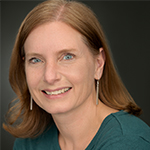

About Tanya Kyi
Tanya Kyi is the author of more than 30 picture books, novels, and information books for children and young adults. She often writes about science, history, pop culture, or a combination of the three. Tanya is a past winner of a B.C. Book Prize, a Science in Society Book Award, a Hackmatack Children’s Choice Award, an Information Book Award, and a Montaigne Medal.
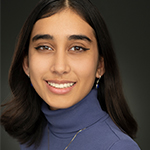

About Julia Kyi
Julia Kyi is a grade 12 student, intersectional feminist, and youth advocate. She is passionate about justice and will be pursuing a degree in political science and gender studies in the UBC/Sciences Po dual degree program this fall. Better Connected is her first book, and she hopes to inspire young readers to use social media as a positive tool.
